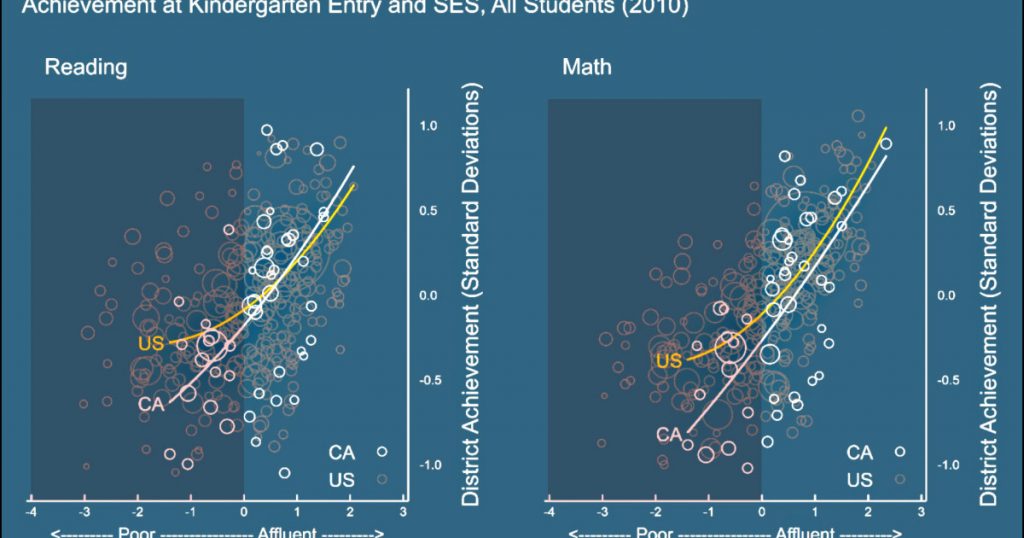California Kindergarteners Need to Pick Up the Pace
Looking for news you can trust?Subscribe to our free newsletters.
This caught my eye in the LA Times this morning:
When students enter school in California, they learn at a pace on par with — if not better than — those in other states. The problem is that they arrive far behind their national peers, and they never catch up.
This conclusion, from a sweeping research project aimed at charting future education policy, focuses new attention on what is often overlooked: infant and toddler care, parenting skills, preschool and early childhood education. The researchers argue that if California wants to improve student achievement in schools, it has to start much earlier so that children are prepared when they show up for kindergarten.
I’m a fan of early childhood education, but I was surprised that a new report finds that California children arrive in kindergarten “far behind” their national peers. Here’s how California’s kindergarten students stack up compared to the rest of the country:
The white line is California while the yellow line is the US average. As you can see, kids in poor districts arrive at kindergarten with scores about a third of a standard deviation below kids in poor districts elsewhere in the country, both in reading and math. Speaking very roughly, this is a difference of around one grade level. However, once they start school, they progress pretty well:
Poor students actually progress a little better in California compared to the rest of the country. In fact, poor students progress about one-eighth of a grade level faster than average, which means that by the end of elementary school they’ve pretty much caught up to poor students in the rest of the country.
I’m still in favor of good early childhood programs, but I’m not sure this data provides much evidence for it. Even if weak ECE participation is responsible for the lagging performance of California’s kindergarten students, it’s a smallish lag that seems to be made up after a few years. It’s hard to draw very strong conclusions from any of this.





